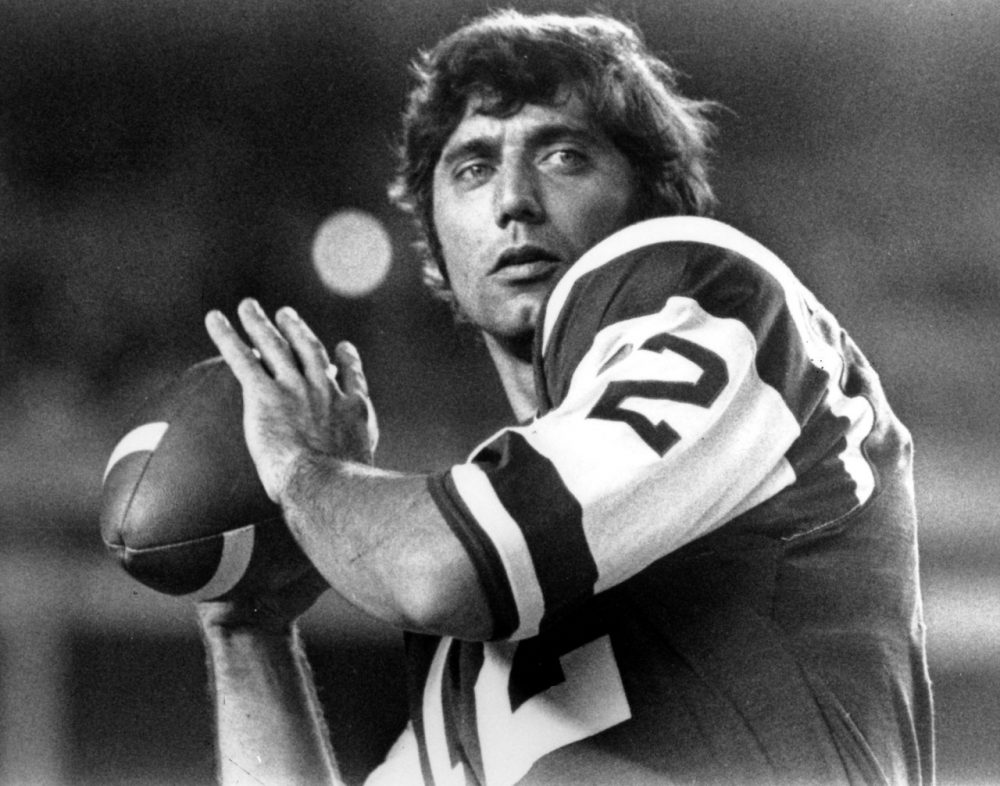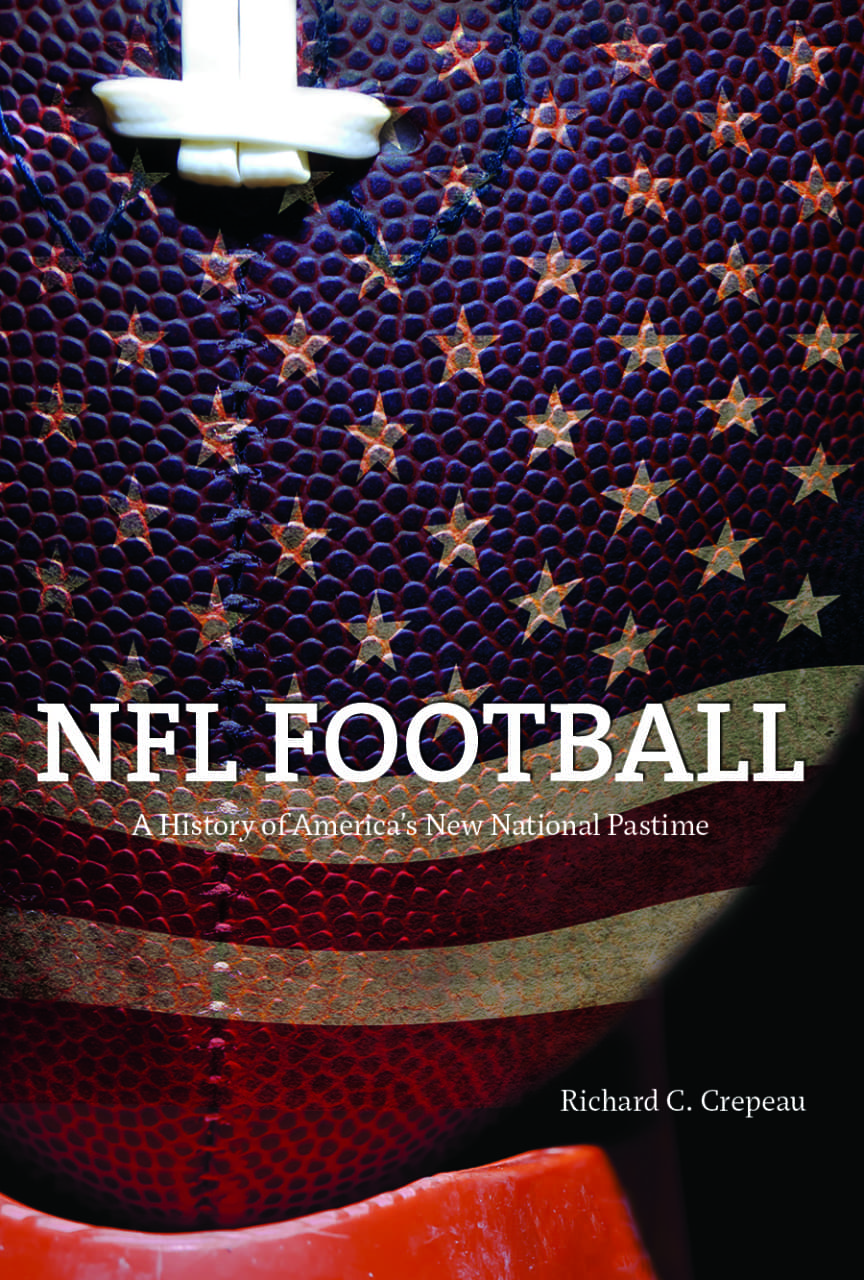Advertisement
How The NFL Became King: A Look Back At The League's Evolution
Resume
It's football season. Actually that's an accurate statement only in the sense that we have reached the time of year when the players take the field. In the U.S. today, it's always football season. There's the NFL Draft, now a major TV show, as well as minicamps, training camps and preseason games; and there are injury updates, lawsuits and police blotters dotted with NFL players.
It has not always been so. As Richard Crepeau, a professor of history at the University of Central Florida, points out in his new book, "NFL Football: A History Of America's New National Pastime," the pro game was once a humble and not especially attractive alternative for guys who played in college and had nothing else to do afterward.
Highlights From Bill's Conversation With Richard Crepeau
 BL: The state of pro football in the early days is evident in the way the league felt it had to promote itself when its first real star, Red Grange, signed on in 1925.Tell us a little bit about the schedule that Grange and his team, the original Bears, endured to introduce the star to the public in various cities.
BL: The state of pro football in the early days is evident in the way the league felt it had to promote itself when its first real star, Red Grange, signed on in 1925.Tell us a little bit about the schedule that Grange and his team, the original Bears, endured to introduce the star to the public in various cities.
RC: It was probably the most brutal schedule any football player has ever gone through. They played a couple of games in Chicago. Then they started an eastern tour, and I think the worst stretch was five games in seven or eight days. There's just no recovery time. And Grange himself was required under contract to play at least 30 minutes of each game.
So even when he got injured, which he did, he played through the injury. And by the time that initial tour got back to Chicago, he was really unable to perform. It was sometime I think in late November or early December, and then they restarted about Christmas and they came south to Florida, went to New Orleans and then out to California, but the schedule was much less rigorous and things worked out much better.
BL: You point out that in the early days of football, franchises disappeared fairly often. You write that Green Bay was the only small-market team to survive the Depression. What was it that allowed the Packers to stay in business at that point?
RC: Well I would say that basically the will of the people of Green Bay. The team went out door to door selling stock in the team and trying to prop themselves up economically, and it worked. They didn't become the great, wonderful money-making machine, but they survived.
BL You identify former New York Jets quarterback Joe Namath as an especially significant figure in the development of the league — and it's not just because the Jets upset the Colts in the third Super Bowl. Tell us a little bit more about how Namath changed the way marketers and the American public came to think about athletes.
RC: When he came to the Jets, almost immediately they began to refer to him as Broadway Joe. So they cultivated that image as much as they could. He started appearing in the media more frequently — the famous pictures of him in the mink coats. He was night-clubbing at all the most important night clubs in New York, and it was an image designed to attract young people to the National Football League, and I think it did. He's the guy who said to the country, this is the "with-it" league. We are really a part of the pop culture. We are the future of America.
Bill's Thoughts On NFL Football: A History Of America's New National Pastime
To some extent, the history of the NFL as Richard Crepeau documents it in his new book reflects the history and culture of the only country in which American football is the national pastime. The league's history is dotted with flamboyant businessmen given to risk, especially when the risk is born by their employees. Its culture is violent.
[sidebar title="Excerpt From 'NFL Football'" width="630" align="right"] Read about television's importance to the NFL's growth in an excerpt from 'NFL Football' by Richard Crepeau. [/sidebar]
The book chronicles various constants: the greed of the owners, for example, and the preoccupation of each commissioner with image and public relations rather than the health of the players. Such is the nature of business, or at least the NFL's business.
Like the country, the NFL has been characterized by racism and paternalism. Like the country, the league fell in love with television, and the consequences in both cases were grand and dreadful.
In my conversation with Richard Crepeau, who teaches history at the University of Central Florida, Dr. Crepeau maintained that there was little original research in his book, but he has brought together from a great many sources the information necessary to anyone who wants to understand the origins and the workings of the powerful and profitable entertainment vehicle the NFL has become.
This segment aired on September 13, 2014.
